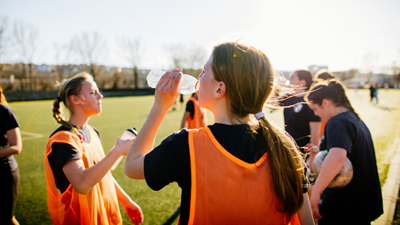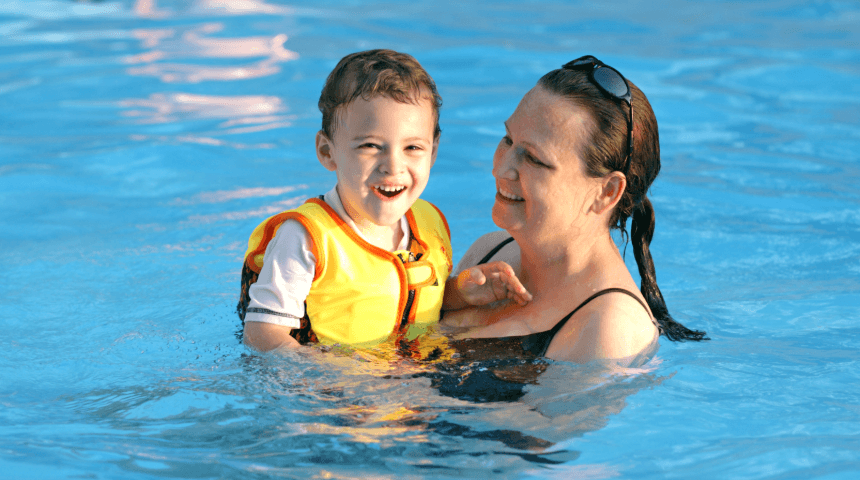School may have started, but it’s still sweltering outside. For Floridians, cooler weather is not in the cards for quite a while. As after-school activities and recreational sports begin, we must remember that extreme heat can take a toll on a child’s body.
Dehydration occurs when a child’s body takes in less water than it’s getting rid of (by urinating, sweating, vomiting or diarrhea), and the body doesn’t have enough fluid to operate properly. Adults usually can prevent dehydration because they will feel thirsty and drink water when they need it. Children can miss these cues, though, and become dehydrated quickly.
It’s important to recognize when your child may need extra fluids and respond accordingly.
Signs Your Child May Be Dehydrated
A child suffering from mild to moderate dehydration may:
- Play less than usual
- Urinate less frequently
- Have a parched, dry mouth
- Have fewer tears when crying
- Have decreased bowel movements (if dehydration is not due to diarrhea)
- Have a sunken soft spot on the top of their head (infants or toddlers)
Young athletes already may be dehydrated by the time they start to feel thirsty, so it’s best to prevent dehydration before it occurs.
How to Prevent Dehydration
Active kids should drink from six to eight glasses of water each day.
If water isn’t available, sports drinks are acceptable, but remember these can contain excess sugar and calories. While many parents think their children need the electrolytes offered by sports drinks to aid in hydration, experts agree that water is best.
Fruits and vegetables also are a good source of water, so you might consider packing a watermelon for a treat at the beach or offering a juicy apple for snack time.
What to Do If Symptoms Are Severe
If your child has any of these symptoms, seek the help of a pediatrician immediately:
- Extremely fussy or upset
- Excessively sleepy
- Sunken eyes
- Cool, discolored hands or feet
- Urinates only once or twice a day
It also is important to note that while exertion in the summer heat can lead to dehydration, there are other (probably more frequent) causes of dehydration, too. These include fever, vomiting and diarrhea.
When dehydration is related to illness, it’s important to increase water intake to compensate for fluid loss. If your child has had significant fluid loss due to diarrhea or vomiting, contact your pediatrician for guidance on how to ensure your child stays well-hydrated.
Are You Interested in Learning More?
Sign up for our e-newsletter for more tips and best practices from pediatricians.
Sign Up Here










